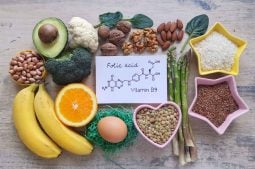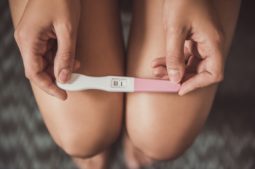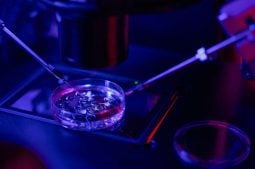
[vc_row][vc_column][vc_column_text]For couples who have already been through an unsuccessful cycle of In Vitro Fertilisation (IVF) using their own spermatozoa and oocytes (eggs), the next step may be to explore the option of using a donor. Donor laws vary from country to country, but in Spain the regulations mean that there is an ample supply of genetic material being donated. This cuts down waiting times for hopeful patients. Egg donation is a vital part of IVI’s work in Spain and worldwide, and being able to offer quick, efficient access to donated eggs and sperm is something we are very proud to offer. For couples or indeed single women looking to travel to Spain from abroad for fertility treatment, it can be difficult to know where to start when researching methods and procedures. We at IVI are experts in the field and have the experience to make your journey to parenthood as stress-free as possible.
Who can donate?
In Spain, egg donors must be between the ages of 18 and 35, while theoretically sperm donors must be between the ages of 18 and 50. In practise, most clinics will reject sperm from donors over the age of 35 as there is potential for decreased quality and an increased likelihood of genetic abnormalities when using sperm from older males. There are rigorous examinations, of the genetic material and family history as well as of the donor’s mental health, to ensure that the donor is suitable for the process. Any potential donors who do not meet our high standards are rejected. The aim is to give patients the best possible chance of conceiving a healthy child. When using donated genetic material, the only way to do so is to carefully control who can and cannot donate eggs and sperm in the first place.
Many young women in Spain choose to donate eggs, as the feeling that it helps others is strongly rooted in the culture. It is a safe way of assisting others in their quest to become parents, and there is no possibility of any resulting children tracking down their donors later in life. However, this does also mean that the law in Spain, unlike that of the UK and USA for example, does not allow a close friend or relative to donate eggs or sperm to a patient or patients. This is to ensure anonymity.
Donor anonymity
Donation is completely anonymous; a situation that is different to many other European countries. For example, in the UK the law states the exact opposite, that donors cannot be anonymous. This means that in the future, egg or sperm donors may be contacted by any children resulting from their altruistic donation. From the age of 16 with parental consent, or 18 without, children may find out their genetic heritage and contact their donors. While the donor will not be financially responsible, they will know that from 18 years post-donation they may be contacted by their genetic offspring, which many do not want. There is also no guarantee of anonymity for donors in Germany, the Netherlands or Norway, for example. It is not unusual for patients from these countries to travel to Spain in order to go through the process of IVF using egg or sperm donations that are anonymous and as a result, in greater supply.
Due to these laws, it can also prove to be a lengthy and difficult process to obtain donated eggs and sperm in these countries. Many patients may end up waiting for years to complete one cycle of IVF using donated genetic material. With many people waiting until they are older to begin trying to start a family, many patients do not have the luxury of this time and the process can be very frustrating. In Spain, due to our strict laws surrounding anonymity for the donor, we enjoy very low to non-existent waiting times. While we do have the ability to freeze donated eggs, there is rarely any need to do so. Patients are matched with donors very quickly, and go through the procedure in a matter of weeks, allowing them time to repeat the process if the first cycle of IVF in Spain is not successful. For these reasons, many patients who would not otherwise be parents have seen their dreams come true.
Who can use donated eggs?
At IVI we of course do not place limits on our patients due to their marital status or sexual orientation. The only barrier we feel is appropriate is an upper age limit for women, which is set at 50. We still work with each patient on an individual basis to make sure that we are making the best choice for her and for her situation, but we do feel that 50 is a reasonable age limit in most cases. Apart from this, we welcome any and all prospective patients from across the globe to enquire and see how we can be of assistance. IVI are leaders in the field of infertility treatments, with many ground-breaking medical procedures carried out in our clinics each year. We are constantly researching and trying new methods to make sure that we give our patients the best possible chance of conceiving and delivering a healthy child. Whether you are a single woman, in a same-sex relationship, unmarried, older or even younger, we consider each patient on a case-by-case basis. Together we may find that in your case, using donated eggs or sperm in Spain provides the best possible chance of having a baby. You many feel, as many patients have done before, that our methods and the availability of donated material suit your needs better than anything your home country can offer. There is a good reason why so many patients from across Europe and even worldwide choose to go through fertility treatments with IVI, and that is down to our experience and methodology.
Conceiving with donated eggs or sperm may seem like a daunting prospect. However, in Spain our laws allow us to keep the donation process anonymous so that we can focus on delivering clinical excellence. Should the process be successful in bringing a much-wanted baby into the world, the new parent or parents can pour heart and soul into their new role free from any worries about the legal implications.[/vc_column_text][/vc_column][/vc_row][vc_row][vc_column]
[/vc_column][/vc_row]




2 Comments
hello, I am interested in ivf with egg donation.
my husband has a good sperm count, but I have had many issues. my AMH is very low and I have no working follicles. my ovaries are both fused to my womb and i have a lot of internal scar tissue from previous gyno surgeries. i was born without a cervix so egg donation is now are best option.
please can you send me details and prices to consider so that we can start the process? thank you
Dear Gemma, we recommend you fill the following form so we’ll be able to contact you and give your more information about our egg donation programmes.